2. I sometimes come across some tidbit that is too long to use as a listing, try as I might to winnow it down. This excerpt from The Beacons by Charles Baudelaire from Les Fleurs du Mal, translated in 1954 by William Aggeler, is such a tidbit. I should mention I already winnowed it down a bunch to the bits I found most interesting, see ellipsis... elipsises... elipsees.....
Also, that there's lots of different translations, but Aggeler's is my favorite. The others I've seen rhyme. Unlike French, English is a very hard language to rhyme in, thus the fading in popularity of rhyming poetry in modern times. Basically, poems translated into rhyme seem forced. Where was I? Oh yes:
The Beacons
Rubens, river of oblivion, garden of indolence,
Pillow of cool flesh where one cannot love,
But where life moves and whirls incessantly
Like the air in the sky and the tide in the sea;
Leonardo, dark, unfathomable mirror,
In which charming angels, with sweet smiles
Full of mystery, appear in the shadow
Of the glaciers and pines that enclose their country;
Rembrandt, gloomy hospital filled with murmuring,
Ornamented only with a large crucifix,
Lit for a moment by a wintry sun,
Where from rot and ordure rise tearful prayers;
Angelo, shadowy place where Hercules' are seen
Mingling with Christs, and rising straight up,
Powerful phantoms, which in the twilights'
Rend their winding-sheets with outstretched fingers;
...
Goya, nightmare full of unknown things,
Of fetuses roasted in the midst of witches' sabbaths,
Of old women at the mirror and of nude children,
Tightening their hose to tempt the demons;
...
These curses, these blasphemies, these lamentations,
...
Are an echo repeated by a thousand labyrinths;
They are for mortal hearts a divine opium.
...
For truly, Lord, the clearest proofs
That we can give of our nobility,
Are these impassioned sobs that through the ages roll,
And die away upon the shore of your Eternity.
From "Borges and Mathematics" by Guillermo Martínez
Bertrand Russell's paradox shows that one cannot postulate the existence of a set that contains all other sets. (A set is a collection: all the people in this room, all the trees in the world.) Observe that the sets that we ordinarily think about are not elements of themselves. For example, the set of all the people in this room is not a person itself. The set of all trees is not a tree. But let's consider the set of all concepts. The set of all concepts is indeed a concept. In other words, the idea that a set could be an element of itself seems to fit the conception of “set”.
Now imagine a set of all sets, a collection of all collections. Being itself a collection, it would have to be an element of itself, contain itself in the collection.
Reasoning along these lines, one can distinguish between sets that are elements of themselves and others that are not. Let's consider the set of all sets that are NOT elements of themselves:
X = {A: A is a collection and A is not in the collection A}
Then X will contain the set of all natural numbers, the set of all trees, the set of people in this room, and so on. Now we may ask ourselves: is X an element of X? If X were an element of itself, if X were an X, then it would have to satisfy the definition written above. In other words, if X belongs to the collection of collections where the entire collection was in the collection, then X is not an element of X, because that contradicts the definition of X. It's not a collection of things where the collection is in the collection. But this is absurd. Does that imply then that X is not an element of itself? If X were not an element of itself, then by the definition it would have to be a collection of things where the total collection isn't an element in the collection . In other words, if X were not an element of X, then X would have to belong to X. But this is also absurd. Here we have a set that is in Neverland, a set that neither is nor is not an element of itself.
With this paradox, Russell provoked a profound crisis in the foundations of mathematics.
(If your brain is scrambled, the following might help.)
To popularize his paradox, Russell came up with the story of the local barber who shaves all the men in town who do not shave themselves. On its face, the existence of a man with this honest profession seems quite reasonable: the barber, one would say, is precisely the man who shaves the men who do not shave themselves. But now we ask the question: does the barber shave himself, or not? If he shaves himself, then he has to belong to the class of those men in town who shave themselves, and hence is not shaved by the barber (that is to say, himself). On the other hand, if he does not shave himself then he is left in the class of men who do not shave themselves, and hence must be shaved by the barber (himself). The barber is trapped in a logical limbo in which his beard grows and he can neither shave it nor neglect it.




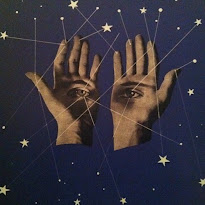







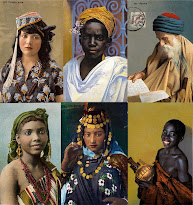



















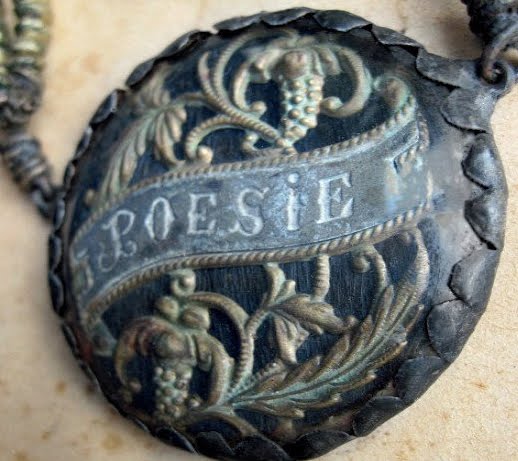





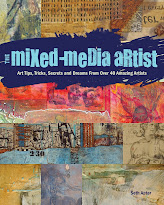


























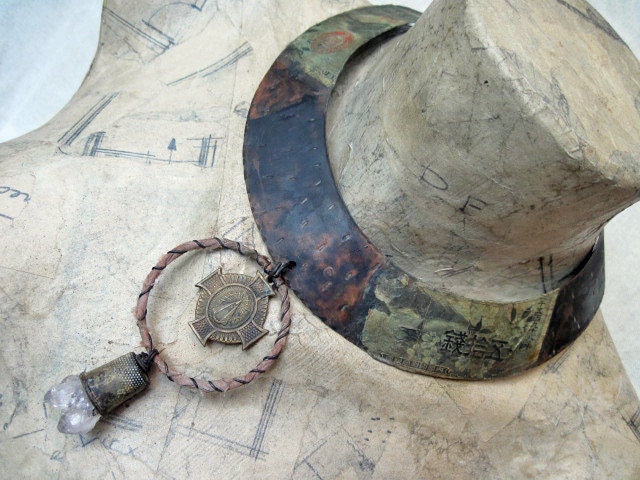

3 comments:
Maybe this is related to your post and maybe not--I know you love Russell Edson, so I've been meaning to recommend the prosey poet Matthea Harvey. I think you'll love her. Here's a link to one of my favorites:
http://www.mattheaharvey.info/poems/crowds_cheered.html
and a link to her site which has many others: http://www.mattheaharvey.info/index.html
"Just make the barber a woman!"
BEST.ANSWER.EVER. Or we could just bring in the notion of 'exception to the rule'. You know how like all boys called Tim are tall and have big teeth, but I actually know one who's short.
You know the thought that used to make me dizzy? I'd stand in the back yard and look at the moon when the sun was still up- and think 'I'm on a planet. that little white thing is another planet. that yellow thing is a star. All that blue stuff is the universe which this planet floats in and I'm standing on it...' and then I'd have to sit down. And then I learned that the stuff our bodies is made of is the same stuff everything in nature is made of. And that same stuff came from exploded stars. Then I had to lay down.
(I know the moon is technically a satellite, but I was 15 and we hadn't done astronomy in school.)
Post a Comment